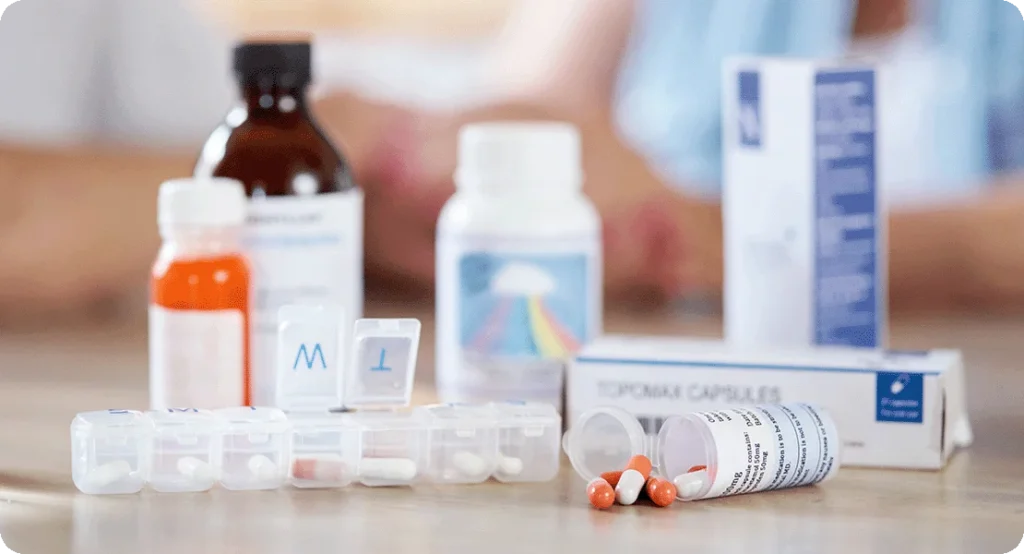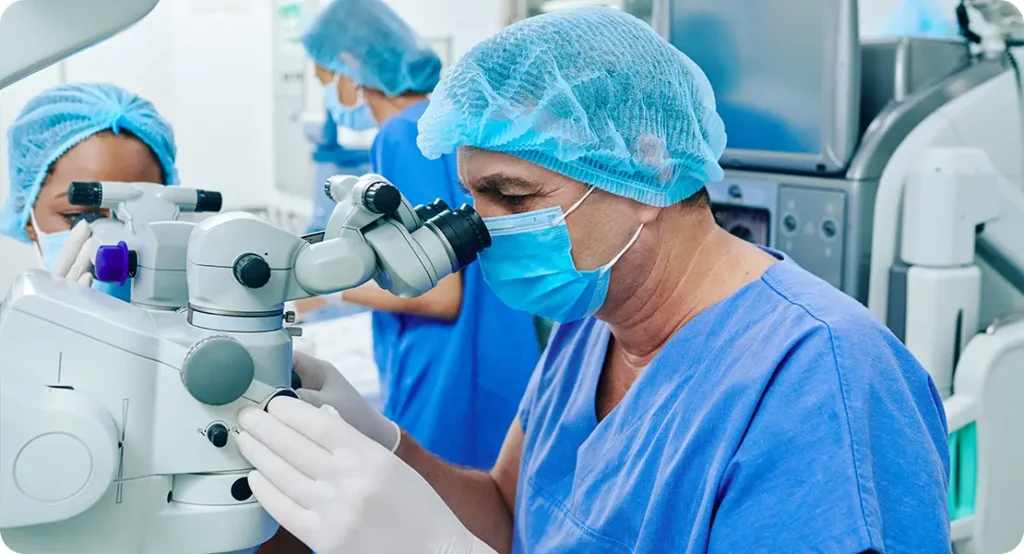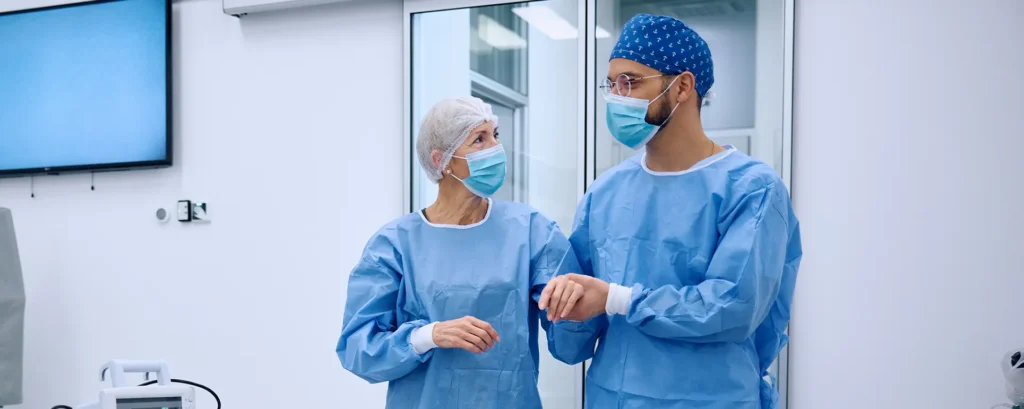If you’ve undergone a life-saving organ transplant—whether it’s a kidney, liver, heart, or even a lung—you’ve already been through a medical journey most people can barely imagine. So, it’s understandable if the idea of undergoing another procedure, even a relatively common one like cataract surgery, feels daunting. You might be wondering: Is it safe? Will your medications interfere with healing? What extra precautions need to be taken?
The good news is that many transplant recipients successfully undergo cataract surgery every year. But your situation does require a bit more planning and teamwork. This article will walk you through everything you need to know about having cataract surgery after an organ transplant—from how immunosuppressive drugs affect your eyes, to what your ophthalmologist and transplant team will do to ensure your safety and a smooth recovery.
Why Cataracts Are Common After Transplant Surgery
Let’s start with the basics. Cataracts are a clouding of the natural lens of your eye, and they’re one of the most common age-related eye conditions. However, for organ transplant recipients, they tend to develop earlier—and for reasons that are often linked to your medications and immune status.
One of the biggest culprits is long-term steroid use. If you’ve had a transplant, chances are you’re on a maintenance dose of corticosteroids like prednisolone. While these drugs are crucial for preventing organ rejection, they also increase the risk of developing posterior subcapsular cataracts—a particularly vision-disturbing form of cataract that can progress more rapidly than typical age-related types.
On top of that, some immunosuppressants can subtly alter the eye’s microenvironment, making it more vulnerable to oxidative stress or reducing its ability to repair itself after cellular damage. The result? Cataracts that seem to creep in sooner than expected.
How Immunosuppressants Affect Healing After Cataract Surgery

Immunosuppression is essential to prevent organ rejection, but it does come with a few trade-offs—particularly when it comes to wound healing and infection risk. These effects aren’t just theoretical; they have real-world implications during and after eye surgery.
First, your body’s normal inflammatory response is deliberately suppressed. While this is great for avoiding rejection, it can make post-op healing slower and less robust. Any minor complication—such as a bit of inflammation or a low-level infection—can take longer to resolve. That’s why your eye surgeon will often opt for more frequent follow-ups to monitor your healing closely.
Second, the risk of postoperative infection is slightly higher. The eye is normally a very well-protected area, but in someone whose immune system is dialled down, bacteria or fungi that would usually be harmless can cause more trouble. To mitigate this, your cataract team may tweak the usual prophylactic regimen, sometimes adding a broader-spectrum antibiotic or extending your treatment duration.
The Importance of Timing: When to Schedule Your Surgery
When you’ve had an organ transplant, timing is everything. This isn’t just about avoiding cold and flu season—it’s about making sure your immune system is stable, your organ function is optimised, and your medication levels are steady.
Ideally, cataract surgery should be scheduled during a period when your transplant function is stable and your blood work shows no red flags. For example, if you’re a kidney transplant patient and your creatinine levels have been fluctuating or you’ve recently had an episode of rejection, it’s best to hold off until things settle.
Many ophthalmologists will liaise directly with your transplant team to determine the optimal window for surgery. This collaborative approach ensures that any systemic concerns are taken into account and that you’re not exposed to unnecessary risk.
Anaesthesia Considerations for Transplant Patients
Cataract surgery is usually performed under local anaesthesia, often with a small injection around the eye or with numbing eye drops. This is actually beneficial for transplant recipients, as it avoids the risks associated with general anaesthesia—particularly for heart or liver transplant patients, where full sedation could be more complicated.
That said, your anaesthetic team will still need to be aware of your full transplant history. Certain sedatives or pre-operative medications might interact with your anti-rejection drugs, and even local anaesthetic agents can occasionally affect organ function, especially if you’re already on a cocktail of other medications.
So don’t be surprised if you’re asked to bring a detailed list of all your meds or even have a pre-op call between your eye surgeon and transplant consultant. This is all part of the careful coordination that makes your surgery safer.
What to Expect on the Day of Surgery

The day of surgery will feel a lot like any other minor outpatient procedure, but there will be extra checks in place for you. You’ll likely be screened for signs of infection or general illness more thoroughly than most patients. Any signs of fever, sore throat, or elevated inflammatory markers could prompt a last-minute postponement—better safe than sorry.
During surgery itself, the approach is usually the same: a small incision is made in the cornea, the cloudy lens is emulsified with ultrasound (phacoemulsification), and an intraocular lens (IOL) is placed inside the lens capsule. The difference lies in the aftercare.
Expect a tailored plan for your drops and follow-up appointments. You might be given preservative-free medications, extra antibiotic cover, or even oral antimicrobials depending on your risk profile.
Will Your Immunosuppressants Need to Be Adjusted?
Not necessarily. In many cases, cataract surgery is considered low risk enough that your immunosuppressant regimen can remain unchanged. However, your transplant team will weigh in on this decision.
For some patients—especially those who are already close to the lower limit of safe immunity—there may be minor adjustments to boost your resistance to infection in the short term. Others might need blood levels of certain drugs (like tacrolimus or cyclosporine) monitored more closely around the time of surgery.
It’s critical that you never stop or reduce your transplant medications without explicit guidance from your consultant. Doing so—even temporarily—can risk organ rejection, which is far more serious than any post-op complication from eye surgery.
Choosing the Right Intraocular Lens (IOL)
Your choice of lens implant matters, particularly if your eyes are already affected by systemic conditions linked to your transplant history. For instance, if you’ve got mild diabetic changes in the retina, your surgeon may recommend a monofocal lens for optimal contrast and clarity rather than a multifocal one.
Also, some IOLs are more compatible with long-term corticosteroid use, reducing the risk of secondary complications like posterior capsule opacification (PCO), which can be more common in immunosuppressed patients.
This decision should be made jointly by you and your ophthalmologist, with input from any recent retinal scans or corneal assessments.
Risks That Are Slightly Higher in Transplant Patients
While cataract surgery is highly successful overall, transplant recipients do face a few additional risks that you should be aware of:
- Infection (Endophthalmitis): Although rare, this serious complication is slightly more likely in people whose immune systems are suppressed. That’s why your antibiotic prophylaxis might be a bit more robust.
- Slow Healing: You might notice that your eye takes a bit longer to feel “back to normal.” This is typically not dangerous but does require more patience and regular follow-up.
- Inflammatory Reactions: Ironically, even with a suppressed immune system, some transplant recipients develop exaggerated inflammatory responses in the eye—especially if their immune modulation isn’t finely balanced.
Knowing these risks upfront means you and your team can keep a close eye on them (no pun intended).
How Your Transplant Team Supports the Process
The key to safe cataract surgery after a transplant lies in communication. Your ophthalmologist can’t—and shouldn’t—go it alone. Your transplant consultant will help by:
- Providing clearance based on your most recent organ function tests
- Reviewing your drug levels and recommending any temporary changes
- Coordinating your perioperative care if you’re in a high-risk group (such as recent transplant recipients or those with a history of rejection)
In some cases, a multidisciplinary team meeting may even be held to plan your surgery down to the smallest detail. This might sound over-the-top for a 20-minute eye procedure, but it’s exactly this level of care that makes the outcomes so successful.
Your Role as a Patient: What You Can Do

You have a major role to play in ensuring your cataract surgery goes smoothly. Here are a few simple but powerful steps:
- Keep a current list of all your medications, including dosages and times
- Attend all your appointments, both ophthalmology and transplant-related
- Report any new symptoms, such as redness, pain, or vision loss, right away
- Avoid contact with people who are unwell in the lead-up and aftermath of surgery
- Stay compliant with all eye drops and oral meds your team prescribes
A proactive, well-informed patient makes for a safer and smoother experience all around.
FAQs: Cataract Surgery After Organ Transplant
- Can I have cataract surgery if I’m still on immunosuppressants?
Yes, cataract surgery can absolutely be performed while you’re on immunosuppressants, and in fact, most transplant recipients remain on these medications for life. The key is ensuring that your immune system is stable and that your organ function is well managed, which is why your eye surgeon will work closely with your transplant consultant to choose the right time for surgery. Immunosuppressive medication does increase the risk of infection and may slow healing slightly, but with careful planning and enhanced post-operative care, the outcomes are usually excellent. - Do I need to stop any of my transplant medications before surgery?
You should never stop or adjust your transplant medications unless your transplant specialist specifically advises it. Cataract surgery is usually a low-risk procedure, and in most cases, your existing immunosuppressive regimen can continue unchanged. However, depending on your current health status, the transplant team might adjust dosages slightly or monitor drug levels more closely during the perioperative period. The goal is always to maintain the delicate balance between preventing organ rejection and allowing your eye to heal safely. - Is the risk of infection much higher after surgery?
While there is a slightly increased risk of infection in patients who are immunosuppressed, this risk is well managed with extra precautions both before and after the surgery. Your eye surgeon will likely prescribe more robust or prolonged antibiotic eye drops, and possibly oral antibiotics, to reduce the chance of complications like endophthalmitis. You’ll also have closer post-op monitoring so any signs of infection can be caught early and treated promptly. With this added vigilance, serious infections remain very rare. - How long will it take to recover after cataract surgery?
Recovery after cataract surgery can take a little longer in transplant patients due to the effects of immunosuppressants on tissue healing. While many people notice clearer vision within a few days, you might find that your eye feels irritated or slower to settle in the weeks following surgery. That said, the vast majority of transplant recipients still achieve excellent visual outcomes with proper care. Your follow-up appointments will be more frequent than usual to ensure you’re healing as expected and that any inflammation or dryness is well managed. - Can my cataract surgery affect my transplanted organ in any way?
Cataract surgery does not directly impact your transplanted organ, but it’s still important to be cautious because your body is more vulnerable to stress and infection. That’s why timing and coordination with your transplant team are essential—they ensure that your overall health is stable enough to tolerate even a minor procedure like this. As long as your immune system is adequately supported and you follow your medication schedule closely, your organ should remain unaffected by the surgery. - Will my follow-up care be different from other patients?
Yes, your follow-up care will likely be more intensive compared to a standard cataract patient. You may have more frequent post-op visits, longer courses of antibiotic or steroid drops, and a personalised plan to monitor for complications. This tailored approach is designed to catch any signs of inflammation, infection, or delayed healing early—particularly important when you’re on medication that alters your immune response. Your ophthalmologist will keep a close watch to ensure everything is progressing safely and smoothly. - Should I avoid public places or travel after surgery?
Because you’re immunosuppressed, it’s wise to be extra cautious in the first week or two after surgery. Avoiding crowded public places, particularly during flu or cold season, helps reduce your exposure to infectious agents while your eye is still healing. Travel might be fine, especially if it’s local and low-risk, but it’s best to delay any long journeys or international flights until your surgeon gives the all-clear. Staying in close contact with your medical team during this period is key to catching and addressing any concerns early.
Final Thoughts: Yes, Cataract Surgery Is Possible—With a Bit of Extra Planning
If you’ve had an organ transplant, you don’t need to be afraid of cataract surgery. With a little extra attention to timing, medication management, and infection prevention, you can still enjoy all the life-enhancing benefits that cataract surgery offers. The key lies in careful coordination between your ophthalmologist and transplant team, ensuring that the procedure is carried out at the safest possible moment and that your aftercare is tailored to your unique needs.
At London Cataract Centre, we have extensive experience working with patients who have complex medical backgrounds, including those on long-term immunosuppression after transplant surgery. Our team understands the nuances involved and takes every measure to minimise risks while achieving excellent visual outcomes. From liaising with your transplant consultant to adjusting your recovery plan, we make sure every detail is handled with your safety in mind.
So if your vision is being affected by cataracts and you’ve had an organ transplant, don’t feel like you have to just put up with it. The right clinic, the right plan, and the right support can make all the difference. Speak to your eye surgeon, coordinate with your transplant team, and know that safe, effective treatment is absolutely possible.
References
1. Akbulut, A., Tayanç, E., Çetinkaya, A., Akman, A., Yılmaz, G., Oto, S., Akova, Y., Aydın, P. & Haberal, M. (2003) ‘Results of cataract surgery in renal transplantation patients’, Eye (London), 17(3), pp. 346–349. Available at: https://pubmed.ncbi.nlm.nih.gov/12724697/ (accessed 15 July 2025).
2. Luo, L. H., Xiong, S. H. & Wang, Y. L. (2015) ‘Results of cataract surgery in renal transplantation and hemodialysis patients’, International Journal of Ophthalmology, 8(5), pp. 971–974. Available at: https://www.ncbi.nlm.nih.gov/pmc/articles/PMC4630985/ (accessed 15 July 2025).
3. Rim, T. H., Yoon, C. Y., Park, H. W. & Chung, E. J. (2016) ‘Association between starting hemodialysis for end‑stage renal disease and incident cataract surgery: a 12‑year nationwide cohort study’, Investigative Ophthalmology & Visual Science, 57(3), pp. 1112–1119. Available at: https://iovs.arvojournals.org/article.aspx?articleid=2503584 (accessed 15 July 2025).
4. Chen, Y., Yang, P., Li, W. & Huo, L. (2024) ‘Ocular characteristics and outcomes of phacoemulsification in patients with cataract after renal transplantation’, International Ophthalmology. Available at: https://www.ncbi.nlm.nih.gov/pmc/articles/PMC9245123/ (accessed 15 July 2025).
5. Eksioglu, U., Karabay, S., Gokgoz, G., Yavuz Çolak, M. & Haberal, M. (2024) ‘Evaluation of anterior and posterior segment findings after cataract surgery in patients with a history of renal transplantation’, Transplantation, 108(9S), p. P334. Abstract available at: https://journals.lww.com/transplantjournal/fulltext/2024/09001/p_334__evaluation_of_anterior_and_posterior.1001.aspx (accessed 15 July 2025).

